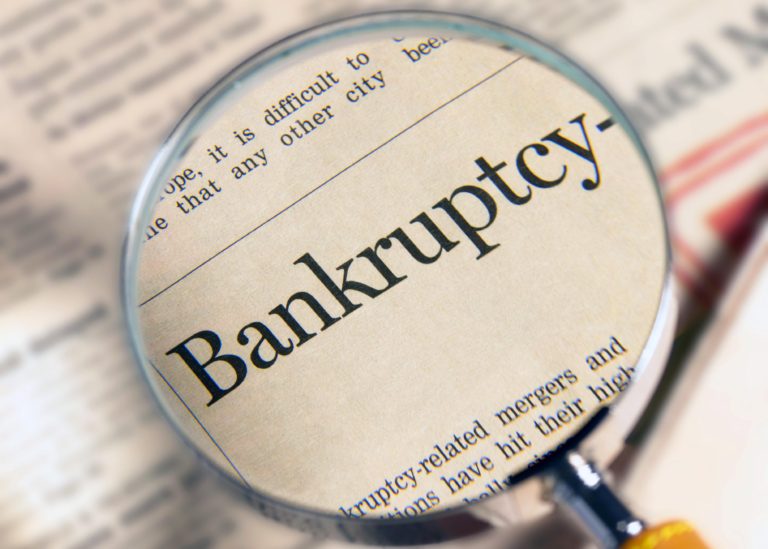
Florida was one of the states hit the hardest during the Great Recession of 2008. According to the Federal Reserve, the median net worth of American families shrunk to 1992 levels by 2010. While Florida began to bounce back, the current economic climate is nothing short of challenging for many Floridians. This has led us to an influx of questions about Florida debt collection laws and statute of limitations.
Florida Debt Collection Laws and Statute of Limitations
Today, we’ve compiled a list of questions and their answers to help you get the information you seek.
When it comes to consumer debt in Florida, there are many bases to cover. Before we take into account the Florida statutes of limitations, federal laws, interest rates, and much more, let’s discuss some facts about debt and credit in Florida.
What is the average credit card debt in Florida?
According to debt.org, the average credit card debt in Florida is $5754. Historically, Florida credit card debts have been higher than the national average. Back in 2010, they reached a high of $7726.
Certain cities in Florida have more consumer debt than others. According to a 2015 study, Miami-Fort Lauderdale had the fourth-highest credit-card debt among the top 25 metropolitan areas in America. Tampa-St. Petersburg came in at eighth.
Tell me about credit scores in Florida
Unfortunately, credit scores in Florida tend to fall significantly behind those of the rest of the country.
The FICO model is used by all three nationwide credit bureaus and it assigns scores on a scale of 300 (poor) to 850 (excellent).
The average FICO credit score in Florida was 658 in 2016. This ranked Florida 35th nationally and put it 37 points behind the national average of 695.
These low credit scores often go hand in hand with higher levels of debt. In addition to credit card debt, Floridians also have higher levels of mortgage debt, student loan debt, and consumer debt.
What about mortgage debt, student loan debt, and consumer debt in Florida?
According to more information from debt.org, Floridians struggle with mortgage debt, along with student loans and auto loans in many cases.
- Auto loan debts in the state have an average outstanding balance of $15,500.
- A 2015 study showed the 30% percent of Florida’s home mortgages were “underwater.” This occurs when debt is higher than the homes were actually worth.
- 54% of Florida’s college graduates in 2014 had student-loan debt for an average of $24,947.
What are the consumer protection laws in Florida?
As we examine some of the statistics about consumer debt and credit in Florida, it’s also important to understand the measures in place to protect Floridians and what their rights are when it comes to debt relief and debt collection.
What is the statute of limitations for written contracts (including personal loans)?
Five years. In Florida, once this debt is five years past due, a lender can no longer sue to collect a debt. The statute of limitations begins to run from the last payment made on the contract.
What is the statute of limitations for oral contracts and revolving accounts (including credit cards)?
These debts have a slightly shorter statute of four years. Again, the limitations period begins to run from the date of the last payment made on the account.
What laws are in place to protect consumers' financial rights?
As it stands, there aren’t many laws in place to protect consumers’ financial rights. While there are a few laws in effect, many of them, including the Deceptive and Unfair Trade Practices Act, don’t do much more than reinforce federally granted rights.
Federal laws can be difficult to navigate. Combined with a lack of state legislation, and consumers are particularly vulnerable. That’s just one reason it’s wise to consult a Treasure Coast bankruptcy attorney for effective guidance.
Tell me more about Florida’s Deceptive and Unfair Trade Practices Act (FDUTPA)
This act passed in 1973 to protect consumer rights. It was created with the Federal Trade Commission (FTC) Act as a reference. This was the original law that created the FTC to protect against harmful trade practices.
There is a federal version of this law, as well as Florida’s own version, referred to as the “Little FTC Act.” Unfortunately, much of the verbiage shared about these laws is rather ambiguous, leaving consumers bewildered.
What happens if I don't pay a debt in Florida?
According to Florida debt collection laws, you cannot go to jail if you don’t pay a debt you owe or a resulting judgment. However, there are other serious consequences, including having a judgement brought against you.
Take a look at this blog post to learn about judgment liens and why you should avoid them.
What is the Fair Debt Collections Practice Act (FDCPA)?
As we mentioned before, there aren’t an abundance of laws in place to protect consumers’ financial rights in Florida. In addition to FDUTPA, there is also the Fair Debt Collections Practices Act (FDCPA).
It outlines specific laws meant to protect consumers from things like inadequate legislation and abuse and harassment from debt collectors.
Please keep in mind these are just a few of the many laws outlined on FTC.gov. We compiled a handful of them to cover some of the topics we’re asked about the most.
FDCPA Laws
Here are just some of those laws, as outlined on FTC.gov:
- Any debt collector communicating with any person other than the consumer for the purpose of acquiring location information about the consumer shall identify himself, state that he is confirming or correcting location information concerning the consumer, and, only if expressly requested, identify his employer
- After the debt collector knows the consumer is represented by an attorney with regard to the subject debt and has knowledge of, or can readily ascertain, such attorney’s name and address, not communicate with any person other than that attorney, unless the attorney fails to respond within a reasonable period of time to communication from the debt collector.
- Without the prior consent of the consumer given directly to the debt collector or the express permission of a court of competent jurisdiction, a debt collector may not communicate with a consumer in connection with the collection of any debt at any unusual time or place or a time or place known or which should be known to be inconvenient to the consumer.
- A debt collector may not engage in any conduct the natural consequence of which is to harass, oppress, or abuse any person in connection with the collection of a debt. Without limiting the general application of the foregoing, the following conduct is a violation of this section:
(1) The use or threat of use of violence or other criminal means to harm the physical person, reputation, or property of any person.
(2) The use of obscene or profane language or language the natural consequence of which is to abuse the hearer or reader.
Get Help with Florida Debt Collection Laws and Statute of Limitations
We just scratched the surface today when it comes to the complicated topic of Florida debt collection laws and statute of limitations. We would love to talk more about how we can help.
If you’re currently facing bankruptcy, consider hiring a lawyer such as Brent M. Myer, PLLC who focuses on consumer bankruptcy. Contact us for a free consultation today.



